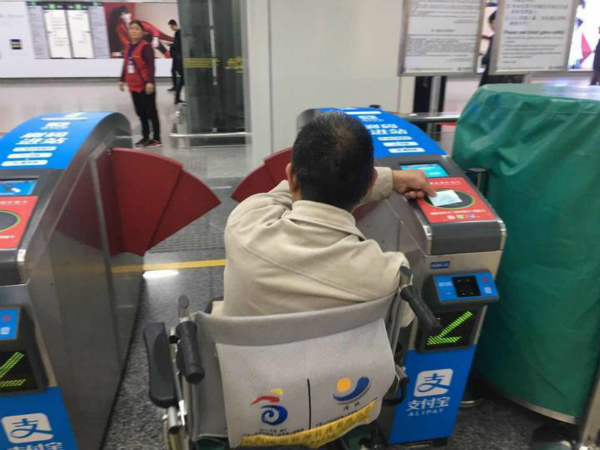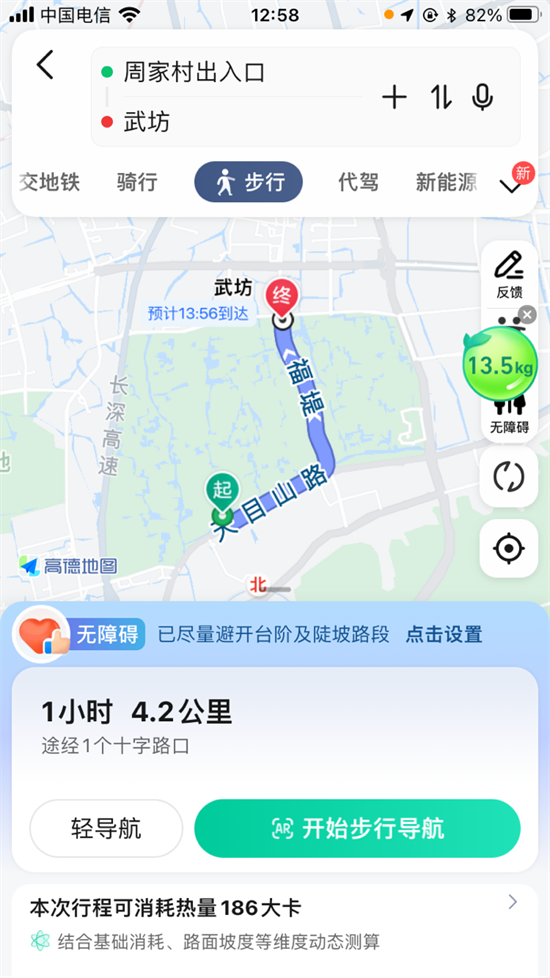Hangzhou's 1,500 accessible public toilets now integrated with Amap wheelchair navigation

A man using a wheelchair enters a Hangzhou subway station. [Photo/zjol.com.cn]
An barrier-free environment is crucial to enabling individuals with disabilities, the elderly, and those with injuries to participate in society in an equal and independent manner. It is also an essential part of hosting the Hangzhou Asian (Para) Games.
Hangzhou, host city of the upcoming Asian (Para) Games, has integrated information about nearly 1,500 accessible public toilets into the Amap wheelchair navigation system, enabling users to quickly access information about nearby barrier-free public toilets by simply searching on the mobile app.
The navigation system, developed as a public welfare project specifically for people with disabilities and limited mobility, has been providing services since its launch on November 25, 2022. The total number of service instances has recently exceeded 2.3 million.
"The biggest challenge in developing wheelchair navigation is not the technology itself, but gaining a true understanding of the users' experiences," said Liu Zhenfei, president of Amap, when discussing the creation of the system.
According to research results, the main reason people with disabilities limit their outdoor activities is due to difficulties remembering every accessible facility and related routes in the city.
This has driven the creation of the wheelchair navigation product – to use technology to enhance the sense of safety and confidence for wheelchair users when they venture out.
Wheelchair users simply need to enable the "Accessible Navigation" option in the settings of the Amap app. When using the walking navigation feature, the app will avoid wheelchair-inaccessible routes such as underground passages and pedestrian overpasses. It can also incorporate accessible facilities such as elevators and lifts to plan a convenient route for the user.
The project has recently been launched in seven cities, namely Nanjing, Qingdao, Changsha, Wuhan, Xi'an, Zhengzhou, and Shijiazhuang. Combined with its previous deployment in cities like Beijing, Shanghai, Hangzhou, Chengdu, Shenzhen, and Guangzhou, wheelchair navigation is now supported in 13 cities nationwide.

The app shows a route avoiding underground passages and pedestrian overpasses. [Photo/hangzhou.com.cn]
-
Visionary Pathway - Hangzhou Playbook
July 15, 2025



